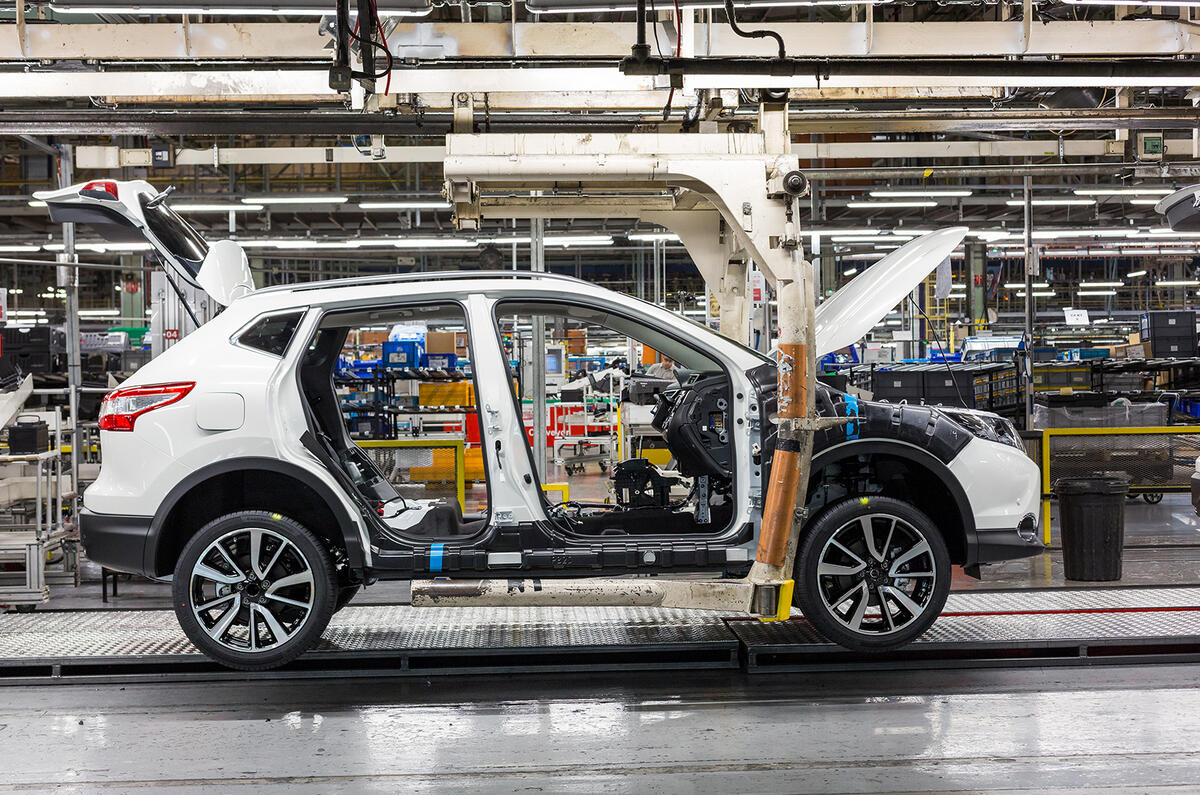The UK government wants 50% of each British-built vehicle to be made from nationally sourced components as part of plans to make the industry more self-sufficient.
In the latest industrial strategy white paper, the government cites electric, autonomous and connected vehicle technology as opportunities to take “global leadership” and reduce the amount of imported parts in UK-made cars.
It reveals plans to boost government investment in technology-developing projects, training and partnerships, citing the new Coventry-based Advanced Propulsion Centre and Meridian autonomous car programme as recent success stories of this practice.
The Advanced Propulsion Centre, which features a battery facility due to be set up by Williams Advanced Engineering, is a government-backed organisation that opened in 2013 with the ambition of designing, developing and producing batteries in Britain with £1 billion worth of investment. Set to be used in low-volume, high-performance automotive products like the Aston Martin Rapide-E, the batteries will also be exported.
More recently, the government has begun its involvement with Meridian, which works alongside the Advanced Propulsion Centre to anchor a ‘cluster of driving excellence’ along the M40 motorway. The programme is designed to accelerate the development of connected and autonomous technology in Britain – directly benefiting internal car and tech companies and giving the country a key asset to export.
The government says in its white paper that projects like these have already pushed the percentage of UK parts in British-built cars up from 36% in 2011 to 44% in 2016. It intends to raise this further in order to make the UK more self-sufficient and less reliant on external producers.
Although not mentioned directly in the white paper’s automotive section, Brexit stands out as a likely catalyst for the government’s UK-centric plan. Recent HM Revenues & Customs department figures reveal that £35 million worth of vehicle parts are imported to Britain each day, emphasising the scale of reliance the country has on its neighbouring continent and highlighting the risk a hard Brexit (and the trade tariffs it could bring) would have.
Alongside calls for a free-tariff EU deal to be secured, industry experts have also warned that the government's latest plans for motorists, which include a new diesel tax hike outlined in the Autumn Budget, could harm the rate of progress being made in cutting-edge automotive technologies. The UK's Society of Motor Manufacturers and Traders CEO Mike Hawes told Autocar that the move will hinder "the ability of the industry and government to achieve CO2 limits" - suggesting the government's white paper ambitions could be impeded by its own policies.





Join the debate
Add your comment
About Time!
I'm pleased to see the British government finally taking steps to support the British auto industry which has suffered from decades of neglect. Perhaps, in the next 20 years or so, we may see the resurgence of a fully independent British car industry.
The home grown UK auto
The home grown UK auto supplier industry is already mostly gone. What remains are mostly foreign owned UK branches of global players. There are some exceptions, but not many. The industry is dominated by the US, German, Japanese and French OEMs, those countries after all have the largest auto industries.
It would be great if these OEMs invested more in the UK facilities, but they are waiting to see what Brexit ACTUALLY means. You can't blame the OEMs for being hesitant: if it's going to be a hard Brexit there simply is no point investing in something already at a major competitive disadvantage.
Historically, British head-quartered firms tended not to try and pursue custom from continental and world automakers, they were also badly effected by the compound decline of the UK manufacturers, so the die was set a long time ago. They were either too inward looking, too unambitious or too small. Much like the many British car brands, the supply base is also littered with long gone names: Lucas, AP, Brycrest, Rists, Smiths, Ferodo, Triplex, etc. Those that remain are relative minnows compared to their rivals.
Rolls and Bentley need to make the bodies in uk
German cars in reality, only recently have Bentley made the w12 in the Uk but all bodies made in Germany